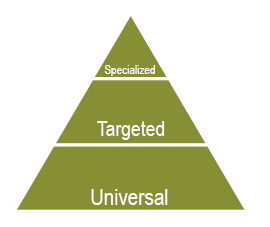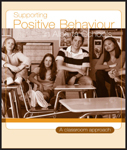
|
Universal Supports benefit all students
- Prior to having substitute teachers to the classroom, communicate clear expectations about behaviour when substitute teachers are taking the place of the regular classroom teacher. Consider introducing the term "guest teachers" to create an understanding that these teachers should be made to feel welcome and be treated as guests of the class. Ask for student volunteers who will be responsible for helping substitute teachers with specific tasks, such as distributing or putting away materials, explaining where materials are stored or using the classroom computer. Post a chart with assigned tasks and student volunteers. If possible, provide the name of another staff member who has agreed to provide assistance, if needed.
- At the beginning of the school year, develop a substitute
teacher plan (that can be used in unplanned absences) that
contains class schedules, seating plans, and identifies individual
students who can provide reliable assistance. Keep this plan
in a file on your desk. Include relevant information about
specific students, and if behaviour support plans are in effect include copies in the file. Update this file at regular intervals throughout the school year.
- For planned absences, develop clear and detailed plans for substitute teachers that include engaging and manageable learning activities that students are familiar with. Identify individual students who have volunteered to provide assistance and include copies of any behaviour plans that are in effect.
- Ask the substitute teacher to provide feedback on how well the class cooperated and completed learning activities. On your return, share this feedback with students, and pair with descriptive feedback to acknowledge positive behaviour of individual students, groups of students and/or the class as a whole. If appropriate, celebrate this success with a preferred activity or other reinforcing activity and tell students why you are doing this.
|
|

|
Specialized Supports benefit the small number of students with sensory, physical, cognitive or behavioural needs that require intensive, individualized interventions
- In exceptional situations, it may be necessary to provide 1:1 adult support to facilitate social interactions and communication between the students and other school staff, including substitute teachers.
|






